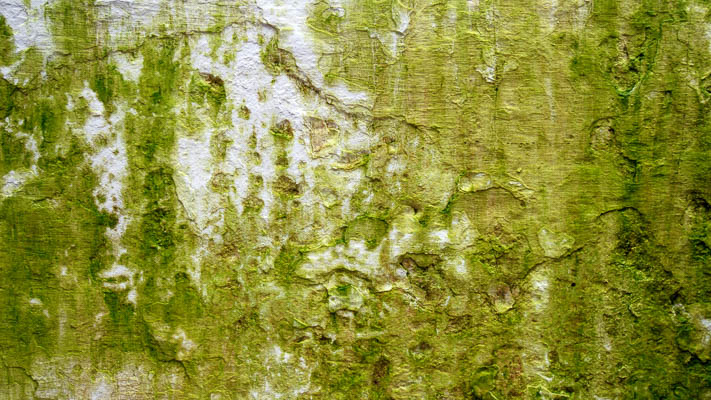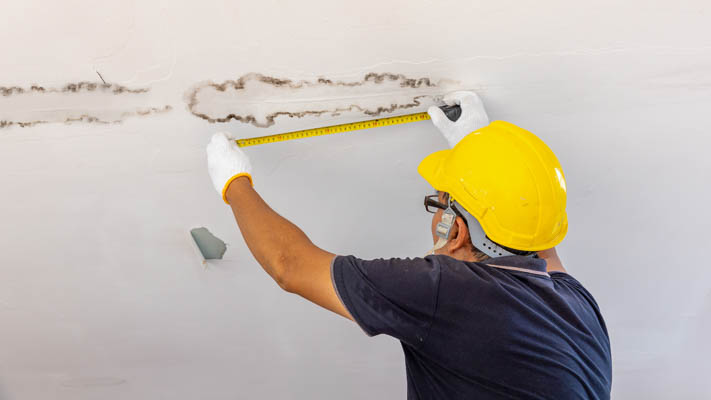Does Homeowners Insurance Cover Mold from a Water Leak?
From what we know, homeowners insurance in most cases will only cover mold if it is the result of a sudden and accidental water event, such as a burst pipe, broken appliance, or roof damage caused by a storm. Insurance providers generally consider these to be unforeseeable incidents, so the resulting mold damage may be included in your policy.
For example, if a washing machine hose bursts and floods your laundry room, your homeowners insurance will typically cover the cost of repairs, including mold removal if it developed from that single event.
However, if the mold came from a slow, undetected plumbing leak that developed over weeks or months, it is very unlikely to be covered. Insurance companies classify this type of damage as a maintenance issue, meaning it is the homeowner's responsibility to prevent or address it before it leads to mold. There are several easy ways to tell if mold is caused by a water leak.
We've made it a little easier by putting together what five major U.S. insurance companies say about mold coverage:
What Some Major U.S. Insurers Say About Mold Coverage
- Nationwide: Mold damage is generally covered if it results from a sudden, accidental water event such as a burst pipe. Claims related to mold from long-term leaks or maintenance issues are usually excluded, and policies may include coverage limits for remediation costs.
- State Farm: Offers optional endorsements to provide additional mold coverage. This helps pay for mold inspection, remediation, and repairs when mold results from a covered peril, but damage caused by neglect or slow leaks is not included.
- Allstate: Covers mold caused by sudden, accidental water events, often with limits up to $5,000. Mold resulting from flooding or ongoing maintenance issues is not typically covered and would require separate insurance.
- USAA: Provides coverage for mold caused by covered incidents like burst pipes or accidental overflows, including remediation and repair. Mold from gradual leaks or lack of maintenance is usually not covered.
- Progressive: Covers mold resulting from sudden, accidental water damage, but usually does not cover mold caused by neglect, such as a slowly leaking pipe. Homeowners should check their policy for specific limits and conditions, and consider endorsements for additional mold protection.
In short, mold from sudden events, like a burst pipe or appliance overflow, is usually covered, while mold from long-term leaks, poor maintenance, or flooding is generally not covered.
If you are unsure which applies to your situation, review your policy's "covered perils" section or speak with your insurer.
Can I Get Extra Coverage for Mold Damage?
Many insurance companies offer optional mold endorsements or add-ons that extend your coverage for mold damage. These can be useful if you live in an area with high humidity or are concerned about mold damage from storms.
A mold endorsement may help cover mold testing and inspection, professional mold remediation, structural repairs caused by mold damage, or any personal property damaged by mold.
If you've experienced mold issues in the past or your home's plumbing system is aging, adding this coverage could save you from paying out of pocket for future incidents.

It's also wise to assess whether your current plumbing setup is contributing to your risk. Outdated materials such as galvanized steel or polybutylene pipes are more likely to corrode or leak over time, creating conditions that lead to recurring mold.
In these cases, a full-home repipe can be far more cost-effective than repeatedly repairing small leaks and dealing with their consequences.
How Can I Prevent Mold after a Water Leak?
Once you've stopped the leak, your next priority is preventing mold from returning. Even minor moisture left behind can trigger mold growth within 24-48 hours, so acting quickly is key.
- Dry affected areas thoroughly: Use fans, dehumidifiers, and open windows to dry any water-damaged materials. If possible, remove soaked carpet, insulation, or drywall.
- Improve ventilation: Install exhaust fans in bathrooms, kitchens, and laundry areas to reduce indoor humidity.
- Use mold-resistant materials: When making repairs, choose mold-resistant drywall, paint, and insulation to reduce the chance of regrowth.
- Monitor for future leaks: Regularly inspect plumbing under sinks, around water heaters, and behind appliances. Catching leaks early is the best way to prevent costly mold issues.
Repiping Outdated Materials to Prevent Mold From Future Leaks
If you're dealing with recurring leaks or have an older home with aging plumbing materials, repiping may be the most effective way to stop mold from coming back. Outdated materials such as galvanized steel, polybutylene, or old copper pipes that have reached the end of their lifespan are prone to corrosion, pinhole leaks, and hidden drips inside walls.
Our full-home repipes replace these older materials with modern alternatives such as Uponor PEX-A tubing, which is flexible, corrosion-resistant, and designed to last for decades. Repiping not only prevents mold-causing leaks but also improves overall water pressure and flow throughout your home.
By investing in one of our repipes, you address the root cause of water-related mold rather than just treating its effects. This long-term solution provides peace of mind and helps ensure your home remains dry, safe, and mold-free for years to come.
Get your free estimate today
With over 75,000 repipes completed, we've perfected our One-Stop Repipe™ for your home.
Get A Free Quote For Your Home Repipe
At Repipe Specialists, we've helped thousands of homeowners eliminate mold caused by leaking or outdated pipes by replacing them with durable PEX tubing. Our clients consistently report cleaner, safer homes and peace of mind knowing their plumbing will no longer fuel hidden mold growth:
- Speed: Our repipe crews typically complete a repipe in a day, returning on another day for wall patching.
- Convenience: Through our One-Stop Repipe™ Process, we handle everything from permits, to wall patching, to inspections.
- Cleanliness: Our crews are trained to protect your home while working (we cover all surfaces with protective sheeting), and to clean up fully at the end of each day.
- Peace of Mind: Repipe Specialists is a fully licensed plumber in every state we operate in, and we back all of our repipes with a lifetime warranty.
- Financing Programs: To help take the sting out of unplanned repipe expenses, we offer several financing programs.
- Price: As a specialist that performs hundreds of repipes a week, we can deliver high quality repipes at a lower cost vs generalist plumbers. Our quotes typically range from $4,500 to $15,000 depending on the size and complexity of your project. We have an article that covers repipe cost factors in detail.
Stop worrying about mold from water leaks. Schedule a free, no-obligation quote with a local repipe consultant today, and see how a full-home repipe can help prevent leaks and mold, while delivering reliable water throughout your home for years to come.

